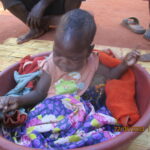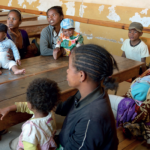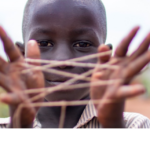Empowerment is an increasingly popular goal, considered core to a transformative agenda for children with disabilities and their families. However, it can still be a poorly understood concept in practice. This article is an empirical analysis of the ‘empowerment journeys’ of caregivers participating in a community-based training programme in Ghana.
Our findings illuminate the complexity and non-linearity of the caregiver empowerment journey. There were important gains in individual dimensions of power and the nascent emergence of collective power, through improved knowledge and valuable peer support from group membership. However, further gains were impeded by their limited influence over wider economic and sociopolitical structural issues that perpetuated their experiences of poverty, stigma and the gendered nature of caregiving. The support group facilitator often played a valuable brokering role to help traverse individual agency and structural issues.




